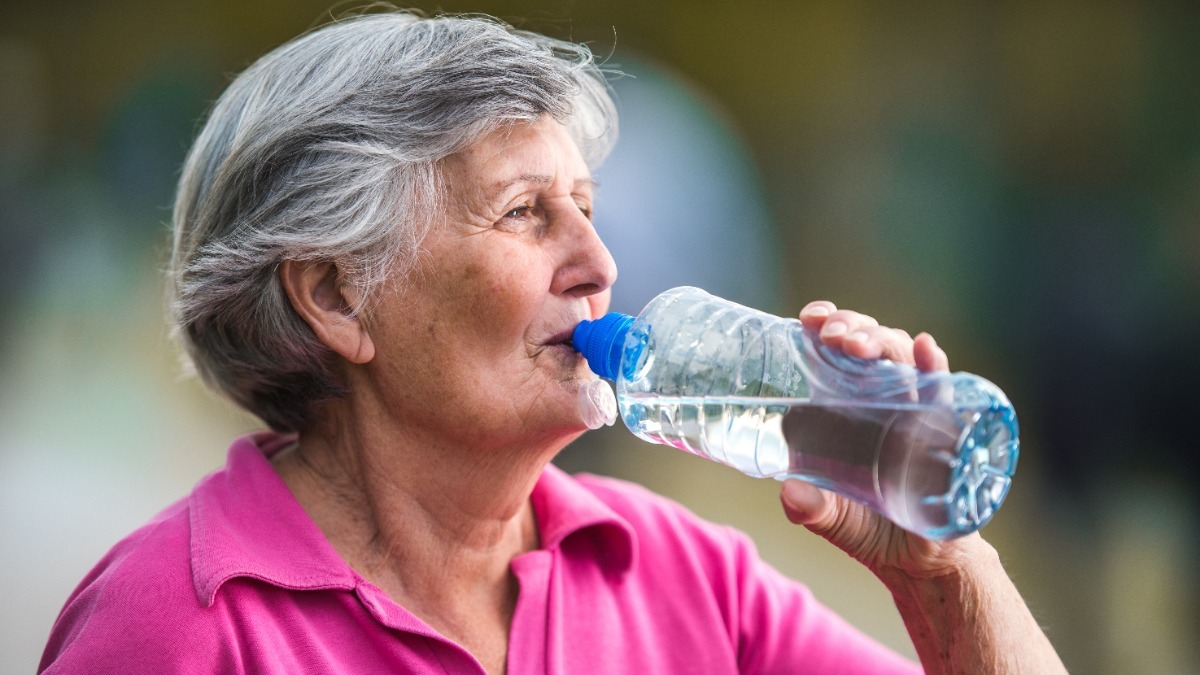
Heat risk: what helps older people
When the thermometer rises above 30 degrees, elderly people and those in need of care are often at risk. On hot days, there is a risk of confusion, fever and severe exhaustion - even heat stroke and circulatory failure. Practical tips for care staff and relatives to protect senior citizens from overheating and dehydration.
Why is heat particularly dangerous for older people?
With age, the body's ability to adapt to high temperatures decreases. Older people often have limited sweat production and reduced blood circulation, which makes it more difficult for them to regulate their body temperature.
In addition, many older people suffer from chronic illnesses such as cardiovascular disease, diabetes or respiratory diseases, which can be exacerbated by extreme heat. These conditions can further impair the body's ability to cope with heat stress. In addition, some medications can reduce sweat production or affect the body's response to heat.
Together, these factors increase the risk of heat stroke, dehydration and other heat-related health problems in older people. It is important that they drink plenty of fluids and stay in cool rooms during hot days.
Tips for senior citizens in high temperatures
Tips for cooling the home
- Keep doors and windows closed as much as possible during the day. Close shutters, blinds and curtains.
- Ventilate your home at night or early in the morning when it is cooler outside than inside.
- Hang a damp cloth in the room.
- Set up a fan. However, make sure that the person in need of care is protected from direct draughts.
- Switch off electronic devices such as lamps, televisions or computers. These produce additional heat.
- If possible, stay indoors with the person in need of care when it is very hot.
How to prevent dehydration
- Offer at least 1.5 to 2 liters of fluids daily, e.g. water, juice spritzers or tea at room temperature.
- Keep reminding yourself to drink. Write down the amount you drink in a drinking log.
- Make sure that a drink is always within reach, even at night.
- Offer sodium-rich mineral water or so-called isotonic drinks in the event of increased sweating, drinking or urination.
- Drinks should not be chilled. The food should be normally salted.
- Avoid drinks containing sugar, caffeine and alcohol.
- Offer light meals with fresh salads and vegetables. Fruit and vegetables rich in water are also suitable, e.g. melon, cucumber or peach.
Practical tips for care in hot temperatures
- Make sure you wear light and breathable clothing. Breathable and natural fabrics made of cotton or linen are particularly suitable.
- Use light bed linen made from natural fabrics such as cotton or linen. Use a sheet as a comforter.
- Place a terry towel on the pillow, which you can change more frequently.
- Discuss with the person in need of care whether they would like a cooling body lotion.
- Offer a foot or hand bath or a forehead wrap with cool water. The water should not be below 25 degrees.
Source: Center for Quality in Care (ZQP)
This YouTube content can only be loaded if you accept the privacy policy of Google LLC.
To the data protection settings "


